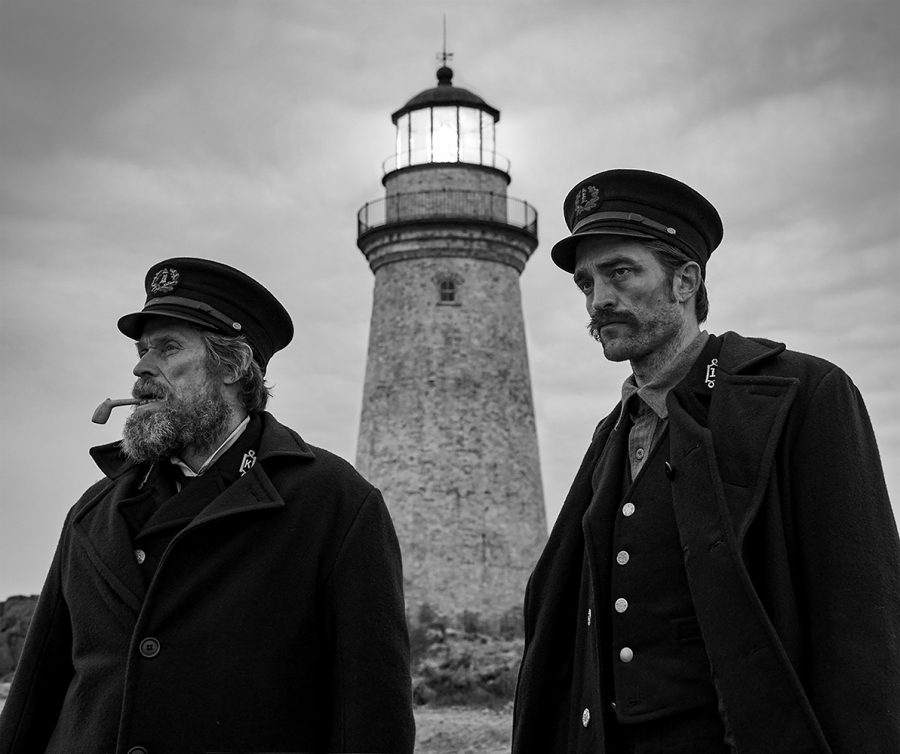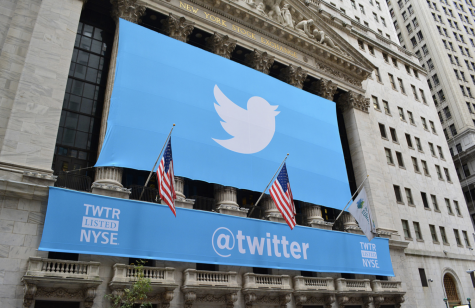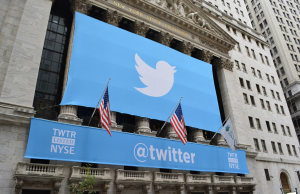Opinion: ‘The Lighthouse’ illuminates the complex landscape of film critique
The popularity of the psychological horror film says a lot about how fine art can and should be appreciated.
Willem Dafoe and Robert Pattinson in "The Lighthouse." (Eric Chakeen/A24/TNS)
November 10, 2019
Maybe it’s the stress of my final year in undergraduate study, or maybe it’s because I stayed up late the night before eating three large fries and binging the Hallmark Channel. Either way, it was a conscious effort on my part to enjoy my showing of The Lighthouse.
This, of course, had little to do with its cinematic quality. I can objectively say that the film will be a top contender during awards season. It has everything going for it: the black-and-white grit of the 1890s, a gradual slip into madness, and siren sex. Now that I think of it, is The Lighthouse some kind of bizarre prequel to The Shape of Water?
But as I was sitting in the fairly packed theater, I found myself asking one question: why am I here? I wasn’t particularly excited about going to see this film, although I was definitely curious about it given my love for the Oscar circuit. But as I fought the urge to place my coat across my chest as a makeshift blanket — worlds away from my bed and the films I truly take joy from — I decided that I was done.
I love movies, but somewhere along the way that got lost behind the front of a pretentious, cinematic snob. I in no way mean that people who relish in these works of art are imposters. We just all have different tastes and interests, and I’m tired of feeling like mine can’t be about DeLoreans, proton packs, and Saturday detentions.
We can’t let others dictate the parameters for the things that make us smile, the things that have us bubbling over with delight and curiosity.
It seems, at least for me, that we live in a world where passions, hobbies, and careers are mutually exclusive. As if you can love sports or the royal family, but what’s your day job? Or even that we have to feel silly about how much knowledge we have about pop culture because it’s considered low brow. In the realm of fine arts, intelligence is measured by how quickly we can recite Walt Whitman or list the directorial debuts from 1936.
But aren’t the things that are so iconic to our society, quotable beyond decades, telling us crucial things about who we are as a people?
Yes, there is profound power in stepping outside of your comfort zone. This is the only way we learn about stories and concepts beyond the six films we always suggest for movie night. But there has to be a line between expanding your horizons and losing touch with who you truly are.
I left The Lighthouse incredibly frustrated with how far I had deviated. Going to movies had become a chore, something to squeeze into my schedule with little excitement. I even started to question whether or not I was a movie buff, which then fed into doubts about my future ambitions.
Then it hit me.
We can’t let others dictate the parameters for the things that make us smile, the things that have us bubbling over with delight and curiosity. A person is no less a book lover if they choose to read young adult romance versus the latest Nobel Prize in Literature. A person is no less an artist if they want to paint variations of Marilyn Monroe instead of working on the next Mona Lisa.
And a person is no less a movie lover by hitting play on Stand By Me for the umpteenth time while Lawrence of Arabia waits in the wings.
Columns reflect the opinions of the authors and are not necessarily those of the Editorial Board, The Daily Iowan, or other organizations in which the author may be involved.


















